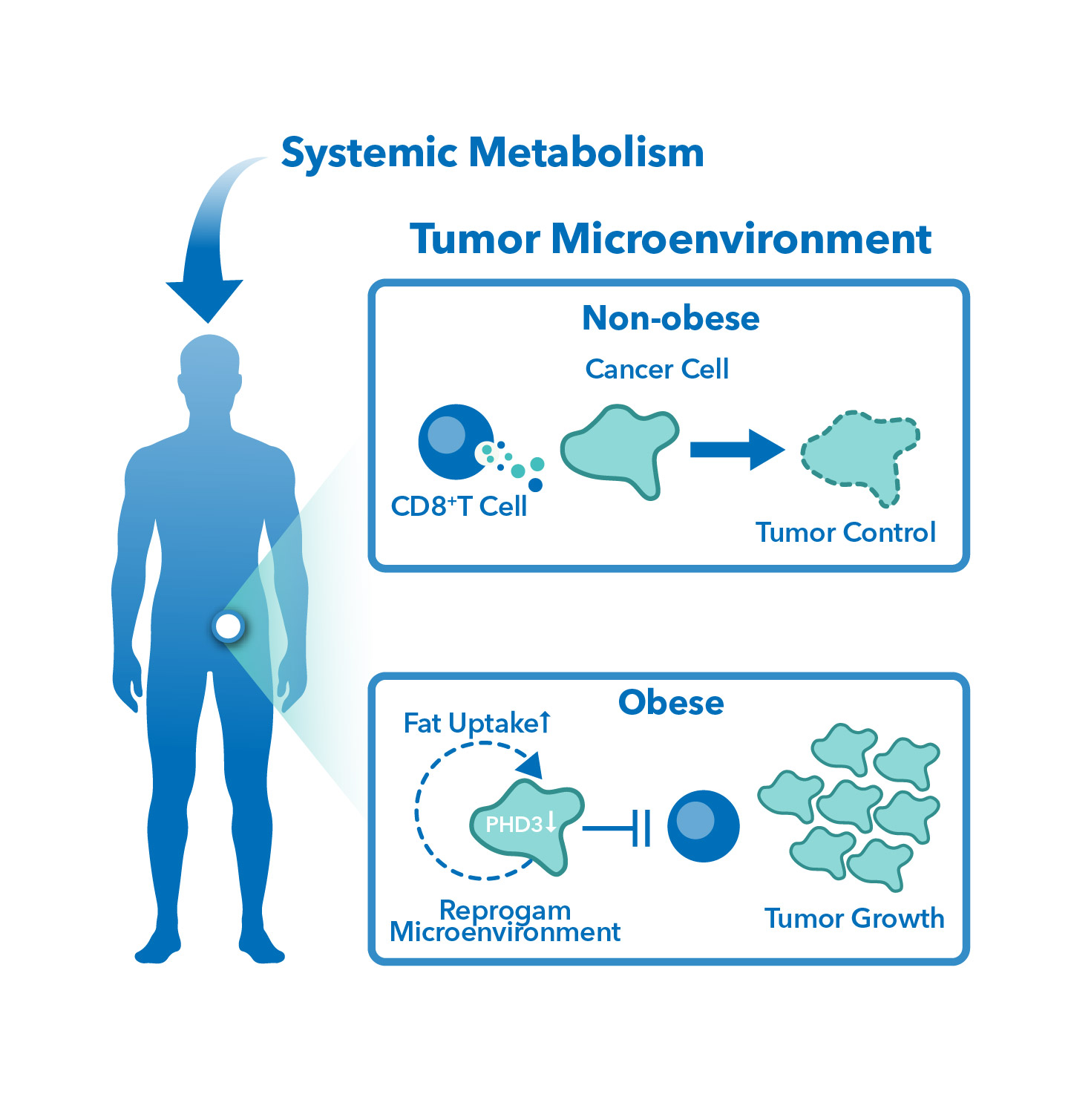Obesity is a growing health concern worldwide. According to research, it is associated with an increased risk for cancer of at least 13 anatomic sites, including endometrial, esophageal, renal and pancreatic adenocarcinomas; hepatocellular carcinoma; gastric cardia cancer; meningioma; multiple myeloma; colorectal, postmenopausal breast, ovarian, gallbladder and thyroid cancers. Although the mechanism of this relationship is unclear, the existence of diet-based therapies (ketotherapy) as a form of cancer treatment suggests that diet somehow affects the activities of cancer cells or its environment. Preclinical studies are underway to gain a better understanding of how excess body weight affects the tumor microenvironment (TME) or how it impacts antitumor immunity.
Diet-Induced Obesity Tumor Models for Cancer Studies
June 14, 2023

- Receptor Mediated Therapies in the Clinic: From Targeting to Impact
- A Translational Lens on Synergistic Cancer Therapy: Insights from Our Recent Case Study
- Redesigning Preclinical Oncology: A Framework for Improving Clinical Translatability with AI, RECIST-Inspired Metrics, and Systems-Level Thinking
- Radiopharmaceutical Dosing Under FDA’s New Spotlight: What You Should Know
- Expanding Access to CART Therapies: TD2 Oncology Featured in SCRS inFocus
Receptor Mediated Therapies in the Clinic: From Targeting to Impact
Your browser does not support the video tag. Receptor mediated therapies have fundamentally changed how cancer is treated in the clinic. What began ...
A Translational Lens on Synergistic Cancer Therapy: Insights from Our Recent Case Study
In cancer drug development, monotherapies often lose ground when tumors adapt. This is especially true for KRASmutant non–small cell lung cancers ...
Redesigning Preclinical Oncology: A Framework for Improving Clinical Translatability with AI, RECIST-Inspired Metrics, and Systems-Level Thinking
Despite decades of investment in oncology drug development, the translational pipeline from preclinical models to clinical success remains ...
Get Started
Contact Us Today!
If you’re looking for an expert team to guide your trial with efficiency in mind, we can help. As the creators of the Dynamic Trial, TD2 provides start-to-finish support with trial strategy, design and execution for faster go-to-market potential.


